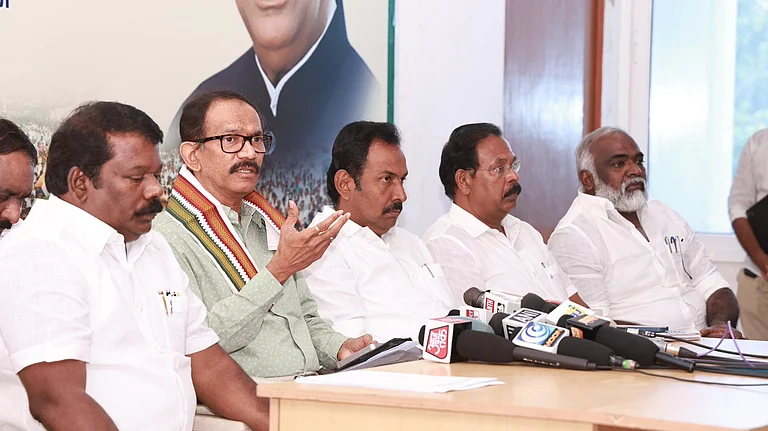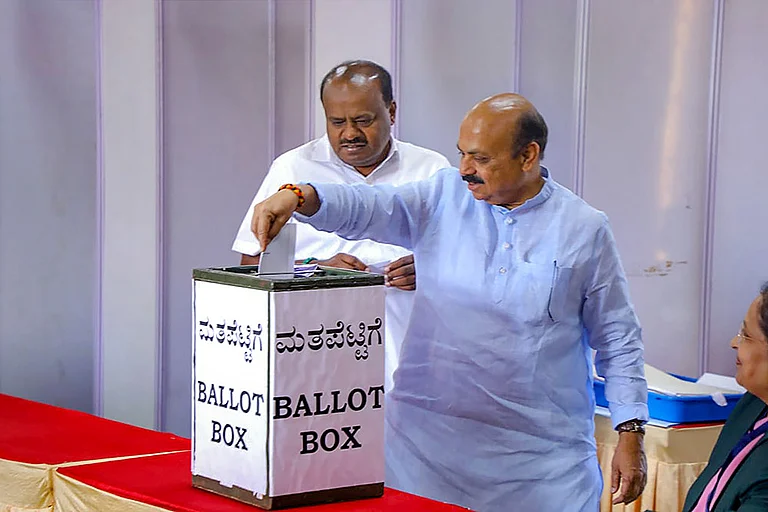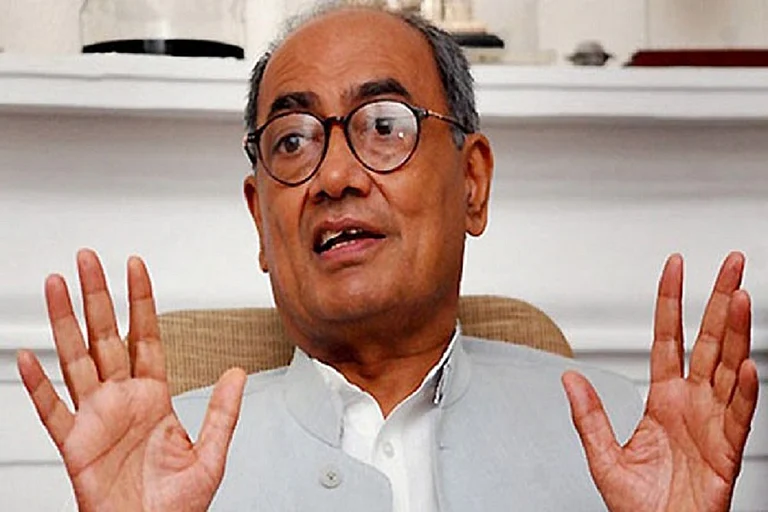In a huge jolt to the ruling Congress, in the history of Himachal Pradesh, opposition BJP secured an otherwise “impossible” win for a lone Rajya Sabha seat via cross voting by six party MLAs, and three Independents.
Mahajan remained a close loyalist of former Chief Minister Virbhadra Singh and had joined the BJP ahead of 2022 assembly elections. A former minister, Mahajan was the PCC vice-president when he quit the Congress.
The consequences of the defeat of the Congress in the Rajya Sabha poll could be much bigger as it also endangers the Sukhwinder Singh Sukhu government, one of the only three states the Congress rules, ahead of the impending Lok Sabha elections.
Abhishek Mani Singhvi, who was a Congress candidate, polled 34 votes—almost equal to those secured by Mahajan and a draw of lots later also went against him, closing the Congress chapter completely.
Had all Congress MLAs and three independents voted for Singhvi, he would have won by 43 votes – a calculation which the Congress had done in its camps.
Just a night before the voting, Singhvi had hosted a dinner for all the Congress MLAs and three independents backing the party. None of the Congress leaders including a confident Chief Minister Sukhwinder Singh Sukhu had any inclination about the MLAs' game plan.
The Congress initially issued a whip but when the BJP raised objections describing it as unconstitutional, the party withdrew the whip.
The way the cross-voting plan was discreetly worked by the BJP, particularly its candidate Harsh Mahajan, has surprised the Congress leaders, who believed that cross-voting can’t happen because of strict guidelines of the Election Commission of India (ECI).
The MLAs, indeed, were told in the Congress Legislature Party (CLP) that it is mandatory that when the vote is cast, the MLA has to show it to the authorised agent of the party. If any member defies or doesn’t show the same to the authorised agent, the vote will be termed invalid.
“Cross voting refers to an act where the voter of a particular party, MLA in the case of Rajya Sabha polls, casts the ballot for the opposite party or the party to which he doesn’t belong, mostly wilfully and knowingly,” says Prakash Lohumi, a veteran Shimla journalist.
Through this, the MLA (the voter) has clearly defied his party and also the accepted democratic norms.
On Tuesday, when voting started at the state assembly complex, six MLAs brazenly voted for the BJP candidate and even showed the ballot to the party’s authorised agent. Revenue minister Jagat Singh Negi was an authorised agent, who later apparently also alerted the Chief Minister.
This is how the news about cross voting by six Congress MLAs and three independents reached the media even before the counting.
Three independents—K L Thakur (Nalagarh), Hosihar singh (a two-time MLA from Dehra) and Ashish Sharma (Hamirpur) were not supposed to the show the ballot but they accompanied six Congress MLAs later to Panchkula under CRPF security later after the polling. That was a clear signal about their cross voting.
The earliest example of cross-voting in Himachal Pradesh was in 1998 when Anil Sharma, son of former telecom Minister late Pt Sukh Ram was elected to the Rajya Sabha.
“Situation in my case was different. Himachal Vikas Congress – a party formed by my father Pt Sukh Ram ji, had formed a coalition with the BJP. The Congress was in minority yet seven MLAs voted for me though one vote became invalid,” Sharma recalls.
Cross-voting, as per him, is a form of voting in which individuals from one political party vote for candidates of another party. It often keeps happening though the reasons in one state could differ from the other.
The objective of the cross-voting can be strategic, aimed at favouring a candidate who doesn’t have sufficient numbers as compared to the rival thereby affecting the outcome.
Reacting to the development, Chief Minister Sukhu said it was an act of sheer dishonesty on part of the MLAs, who were ‘swearing’ at dinner and breakfasts to vote but did an immoral act - something that has never happened in Himachal Pradesh. Their families will certainly ask them about their highly disgraceful act, he said.
Asked if the government was reduced to minority or what could be his strategy, Sukhu said the assembly is already in session, and they would see what happens next.
However, former Chief Minister Jairam Thakur who went into celebration mode with newly elected Rajya Sabha member and party‘s senior national vice president Sudan Singh, said, "Even God can’t save this (Congress) government. It has been reduced to a minority. Chief Minister should resign.”
Insiders say the cross-voting, engineered by the BJP through meticulous planning, is nothing short of “operation lotus”. It will be tough for Sukhu to save the government from an imminent collapse. The BJP plans to bring a no-confidence motion against the Congress government, says a senior MLA.
Congress MLAs who did cross voting include Devendra Bhutto, Sudhir Sharma, Rajendra Rana, Chaitanya Sharma, I D Lakhanpal and Ravi Thakur. They were later sent to Panchkula along with former Industries Minister Bikram Singh Thakur and MLA Rakesh Jamwal.






















